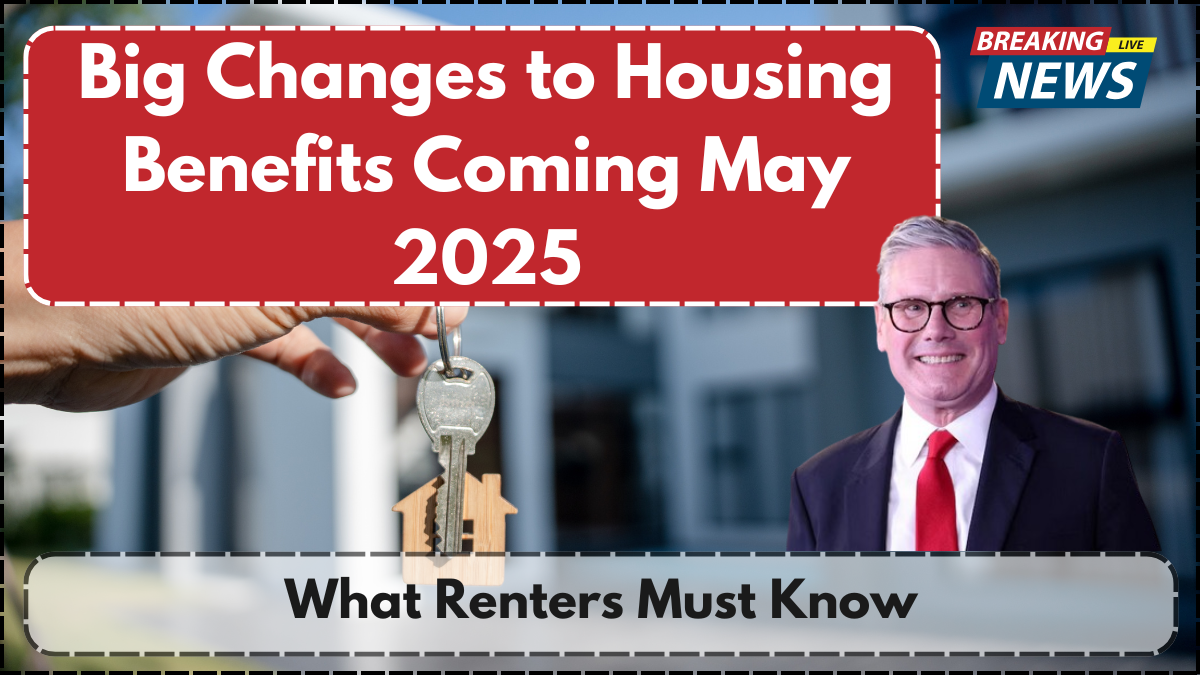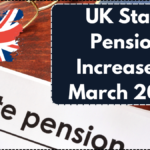Starting May 2025, the UK government will roll out substantial changes to the Housing Benefit scheme—a key support program for low-income renters. These reforms are part of a broader welfare strategy aimed at targeting support more efficiently amid rising fiscal pressures, a volatile housing market, and ongoing cost-of-living challenges.

Why the Reform? Responding to Economic Shifts
The backdrop for the reform is the UK’s continued struggle with high inflation, stagnant wages, and a widening gap between rental costs and average earnings. The government is aiming to contain public spending while still safeguarding vulnerable groups. With more people facing rent strain, the Housing Benefit reform is meant to better align financial support with actual regional needs, while encouraging economic participation.
Key Changes Coming in May 2025
The new policies emphasize eligibility tightening, regional cost adaptation, and stronger work-related requirements. Here’s what claimants need to know:
Stricter Eligibility Rules
From May 2025, the income and savings thresholds will be adjusted. These updates are expected to:
- Disqualify individuals with moderate savings or secondary income sources.
- Require all current beneficiaries to undergo reassessment.
- Affect claimants receiving other benefits like Universal Credit, due to new entitlement calculations.
This will particularly affect households with irregular incomes or those who recently re-entered the workforce.
Employment Mandates for Working-Age Claimants
Non-pensioner claimants will now face enhanced work requirements:
- Proof of active job-seeking will become mandatory.
- Regular meetings with employment advisors or participation in training will be enforced.
- Exemptions remain for full-time carers, disabled individuals, and pensioners.
The policy aims to promote long-term independence, although critics argue it may unfairly penalize those in insecure work.
Updated Payment Calculations Based on Region
Instead of a fixed national rate, Housing Benefit payments will now reflect regional housing markets more accurately:
| Region Type | Expected Payment Change | Key Considerations |
|---|---|---|
| High-Rent Areas | Modest increase likely | Addresses rising rental costs |
| Low-Rent Areas | Likely capped or reduced | Focused on fiscal efficiency |
| Social Housing | Slight adjustments | Governed by regulated rent structures |
Claimants in cities like London or Manchester may see a small benefit bump, while rural or lower-cost regions could face capped payments.
Impact on Private and Social Renters
Private renters might struggle most under the new system. If benefit payments fall short of market rent, tenants may need to bridge the gap from other income sources. Social renters are somewhat protected by regulated rent caps but could still notice minor changes.
Landlords, especially those renting to Housing Benefit claimants, must prepare for administrative delays and tenant affordability concerns. Transparent communication and proactive tenant support will be essential.
Anticipated Challenges and Strategic Response
The broader implications of the reform include:
- Increased housing stress for borderline-eligible households
- Added administrative load on local authorities and welfare officers
- Greater pressure on renters to manage complex benefit rules independently
To adapt, claimants can:
- Use government calculators to model payment changes
- Explore part-time work or training to meet new job requirements
- Apply for discretionary housing payments when needed
- Consider relocation to areas with more favorable rent-to-benefit ratios
Government Support and Resources
Leading up to the changes, the Department for Work and Pensions (DWP) will launch a national awareness campaign by March 2025. Expect to see:
- Webinars explaining eligibility and work mandates
- Updated tools on gov.uk for self-assessment
- Local drop-in sessions at community centers and housing offices
Conclusion
The 2025 Housing Benefit overhaul is a pivotal moment for UK renters. With tightened rules and new conditions, preparation is key. Whether you’re a current claimant or planning to apply, it’s vital to stay informed and proactive. Leverage all available tools and support channels to navigate the shift and maintain housing stability.
FAQ: Housing Benefit Reform May 2025
What are the new eligibility rules in 2025?
Income and savings limits are tightening. Even moderate savings or small secondary incomes may now make you ineligible.
How will benefit amounts change?
Payment rates will reflect local housing costs more precisely. High-rent areas may see increases, while low-rent zones might face capped benefits.
Will everyone be reassessed?
Yes, both new and existing claimants will undergo reassessment to ensure compliance with updated rules.
Are there exceptions to the new job-seeking requirements?
Yes. Pensioners, full-time carers, and people with certified disabilities are exempt.
What should I do to prepare?
Use online calculators, attend information sessions, and contact your local housing officer for guidance.
For More Information Click Here
Pari is a passionate writer known for captivating stories that blend imagination and reality. Inspired by travel, history, and everyday moments, Pari crafts narratives that resonate deeply with readers.




